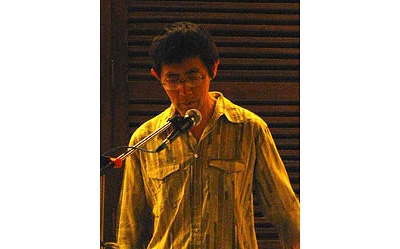Bei Dao: Musings of an Exiled Poet

MUMBAI, February 20, 2009 – An author or poet writing in exile is no longer a new or controversial concept, says Bei Dao, a Chinese poet who was exiled from China after the Tiananmen Square massacre of 1989. Due to globalization, many people are in voluntary "exile" for economic reasons. This large-scale dislocation of people makes writing in exile a "theme of the past."
In a poetry reading event hosted by Asia Society India Centre, Jnanapravaha, and Almost Island, Bei (born Zhao Zhenkai), poet and Nobel Prize nominee in Literature, read several of his poems in Mandarin. Fiction writer Sharmistha Mohanty read the English translations and conducted a discussion with Bei about poetry and writing.
According to Bei, writing poetry is similar to starting a dialogue with himself, and with other people and civilizations. And although he started writing poetry over 40 years ago, he feels as if he is still perfecting his writing skills. As a professor, he interacts with many young people who are now learning how to write poetry themselves, and mused that young people have difficulty writing poetry because they hadn't experienced sorrow as his generation did.
With China’s new economic position in the world, it is a different place from the one that Bei left in 1989. But Bei cautions that tremendous economic growth and material wealth come at a cost. The cost comes in the form of restrictions on certain basic human freedoms. According to the poet, if India wants to learn lessons from China, it should not just focus on its skyscrapers and its economic prosperity, but it should also learn from the areas that China has neglected, like environmental education.
Reported by Angeline Thangaperakasam, Asia Society India Centre
